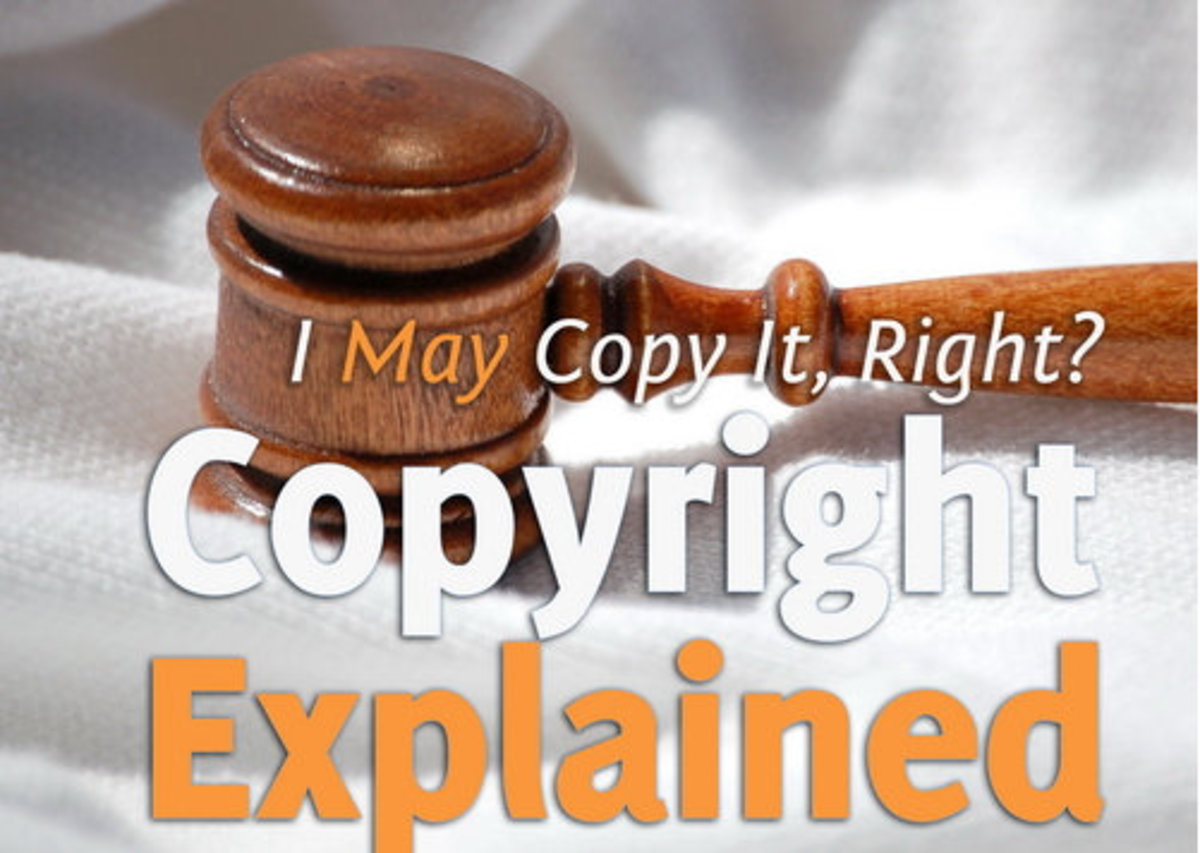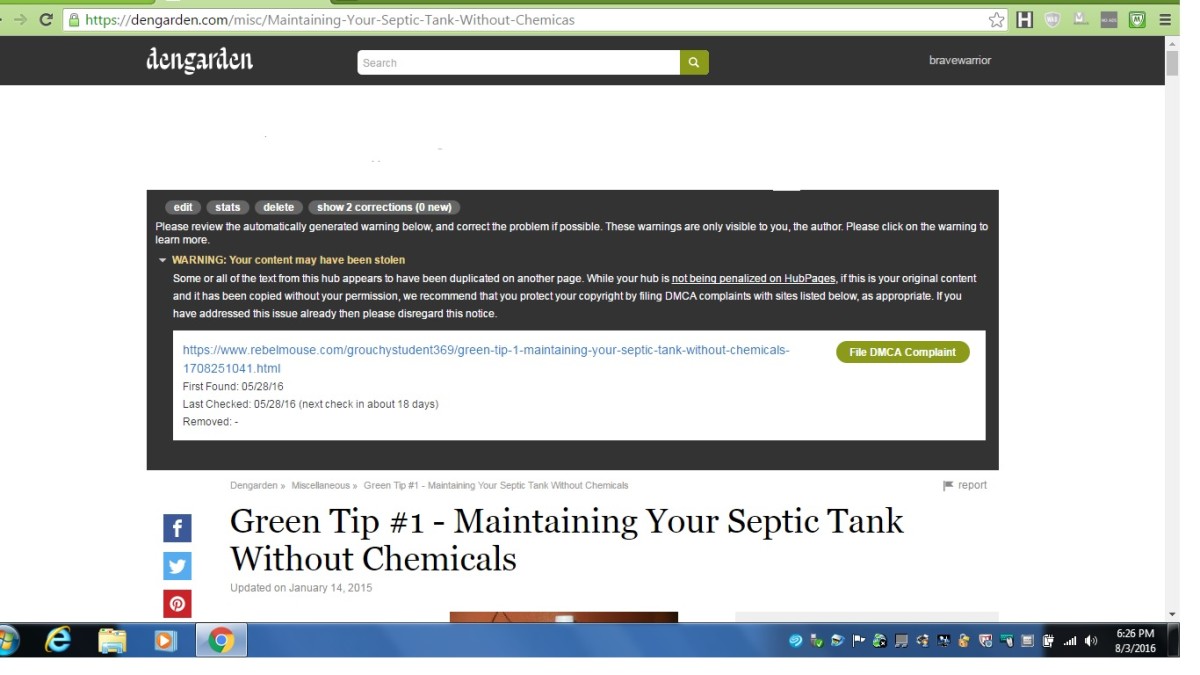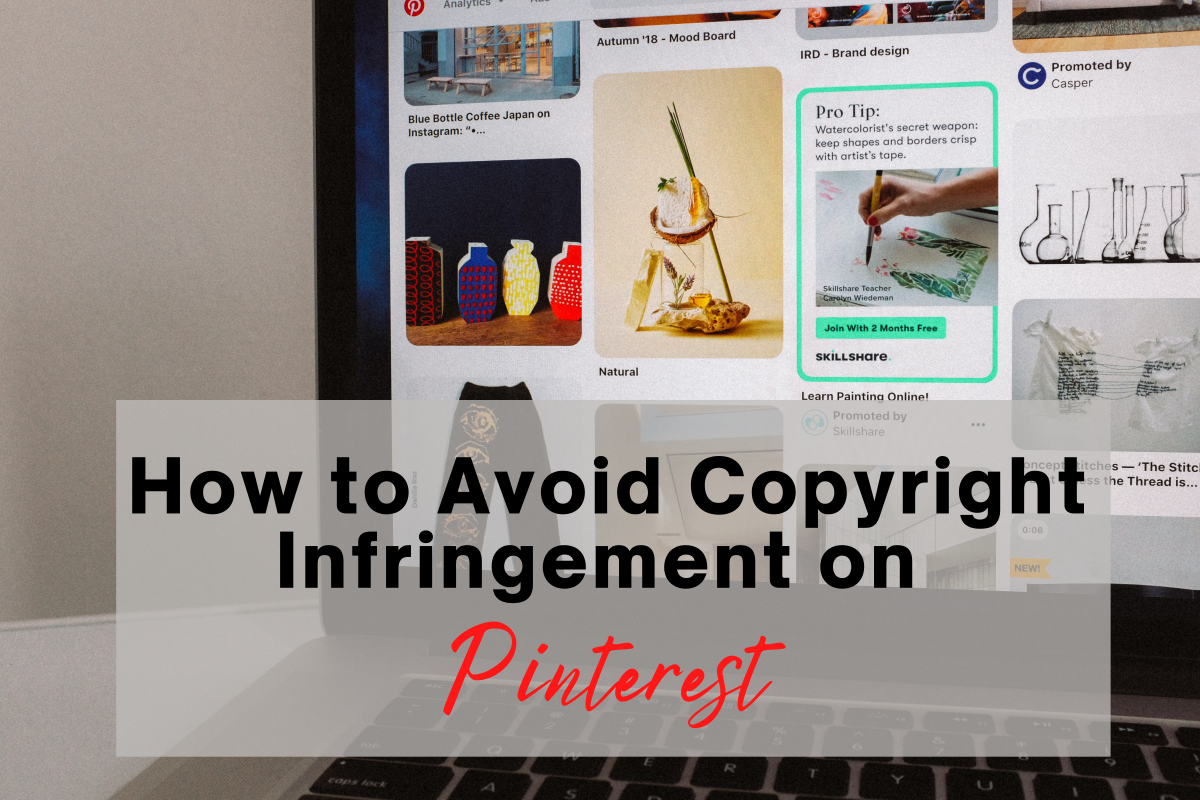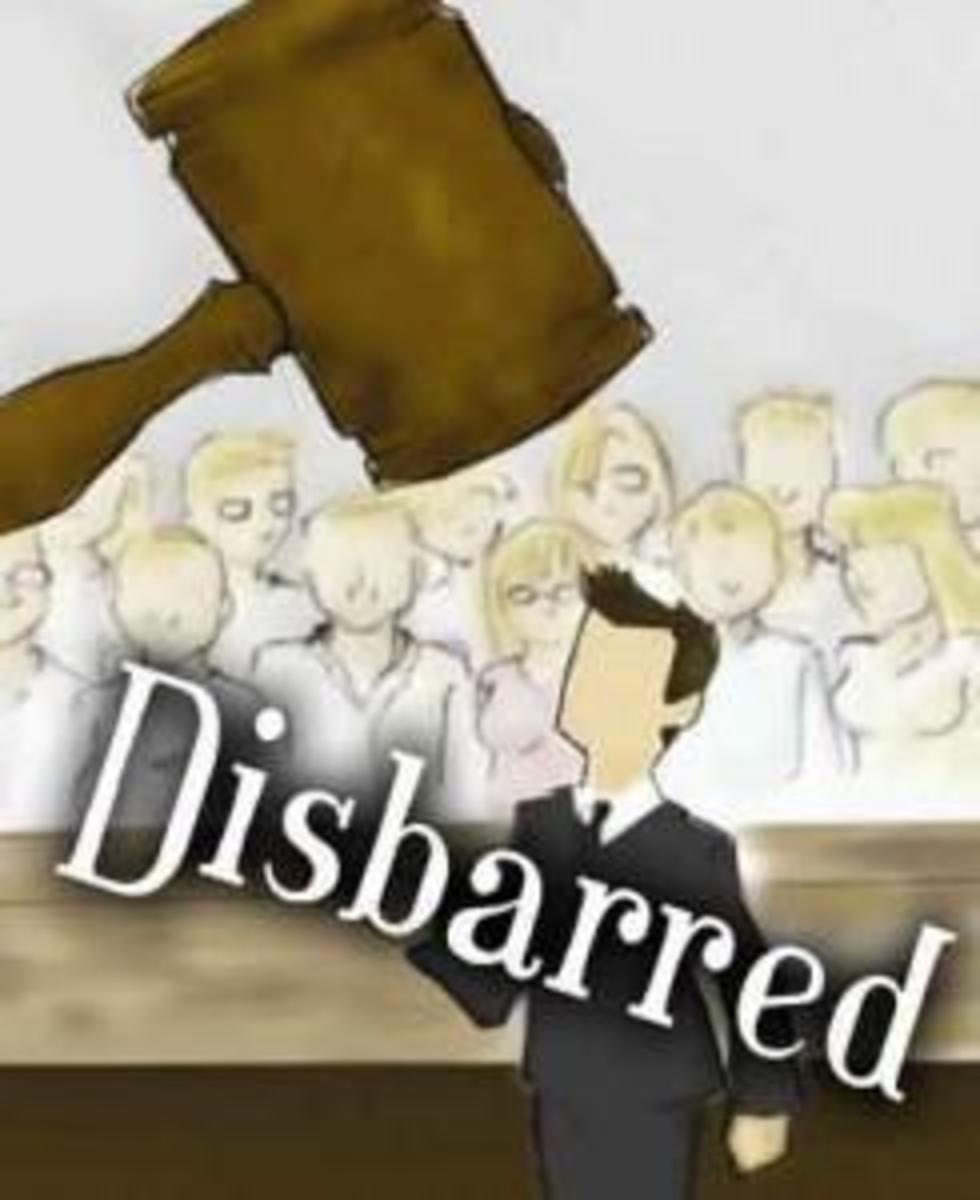Spotlight On: Providing Your Personal Information For Copyright Infringement Claims
By Rachael O'Halloran
Published on November 9, 2014
Let's get the legal part out of the way first.
The general DMCA information in this article is paraphrased by me.
As you read this article, please remember that it is not to be considered legal advice. Consult an intellectual property attorney if you have questions regarding any copyright claim.
This article is my "armchair take" on a recent DMCA case regarding a YouTube video which had an eye-opening and potentially dangerous outcome.
Your "armchair take" is welcomed in the comments.
YouTube Copyright Infringement Hoaxes

Digital Millennium Copyright Act (DMCA)
DMCA notices and counter-notices require your legal name, email address, physical address and a contact phone number.
Protecting Personal Information
One would think that, with all the hype around protection one's personal information, that any personal information provided on an infringement claim form would be protected, right?
No, it isn't.
And it says so in black and white. However, most people skip over the reading of that part on the DMCA form (and counter-notice forms) in their hurry to click the "submit" button.
This article is about someone who not only read that part, but took it seriously.
His life depended on it.
Safe Harbor and DMCA
About Safe Harbor and DMCA:
- Safe Harbor does not protect the copyright holder. According to Section 512 of the Digital Millennium Copyright Act (DMCA), it protects web site hosting services (like YouTube), internet service providers (like Comcast, Cox, Verizon, BrightHouse and others), and search engines (like Google, Yahoo, Bing, etc.) from liability for information posted or transmitted by subscribers, only if they quickly remove or disable access to material identified in a copyright holder's complaint.
- In addition to the location of infringing material, the copyright holder (and anyone contesting with rebuttals) must provide their personal information: real name, email address, physical address and phone number.
- No one (copyright holder nor the infringer) is notified ahead of time when any infringing information is removed from a website.
- A "counter-notice" can be filed, if they think a site wrongfully removed the material.
Regarding a hosting website, Safe Harbor is in favor of the host. It simply means that the site hosting your content:
- has no knowledge that the content has been copied from another source
- must have an in-place copyright policy made available to all subscribers
- must remove and/or disable access to the content once they have been notified
- must have an agent who handles all their copyright infringement complaints
Filing A Copyright Infringement Notice (DMCA)
Have you ever filed a DMCA notice?
Protecting Your Copyright
Lately, the world of protecting one's copyright filing DMCA notices and filing counter-notices has become a battlefield.
Going through the process is not for the faint of heart. One must be bold and steadfast - from filing infringement claims, getting hosts to take down infringing works, all the way through to suing for financial damages in a court of law.
It is a lot of work.
In some cases, it is more work than writing the actual article in the first place!
Because of this, many authors opt to let plagarists get away with stealing their hard work, either because the process seems too hard for them, because it takes too long from beginning to end or because they are worried about providing personal information on the claim forms.
HubPages Authors
A good number of HubPages authors are well-acquainted with the term "DMCA" because they have already filed copyright infringement claims against people who have stolen their articles to post on other websites.
There are other HubPages authors who haven't actually filed a copyright infringement claim, but they have at least read enough about the process on our site to know what I am talking about.
What I want to discuss with you today is what happens to all of your personal information, not only if you are the copyright holder, but if you are also the copyright infringer filing a counter-notice in response.
Filing A DMCA Notice
- Filing with an internet search provider gives you a quick way to get your "copied" article removed from search results. It does not remove it from the internet, just the search results.
- Filing with the host of the infringer's website usually will remove your article from the internet when you show them proof of your copyright claim.
Many people are under the impression that when they give their legal name, email and physical address and phone number on the DMCA form that it stays with the search engine or the web host their form was sent to.
Not so.
In most cases, they will forward a copy of your completed form to the infringer, either in place of or in addition to their own in-house form.
Your personal information has now been given to the very person who stole your article.
I don't know about you, but for me, that is a very scary thing.
A recent case I read about regarding a YouTube account holder has the shoe on the other foot.
Upon being accused of copyright infringement, he filed a counter-notice protesting the copyright claim and had to provide his personal information on the forms which was then sent to the party who was claiming copyright ownership.
This case makes me all the more leery of ever filing another DMCA notice in my lifetime.
It should make everyone think twice before they click "Submit" on the forms, whether they are the copyright holder filing DMCA or the accused infringer filing a counter-notice.
Barino Barsoum
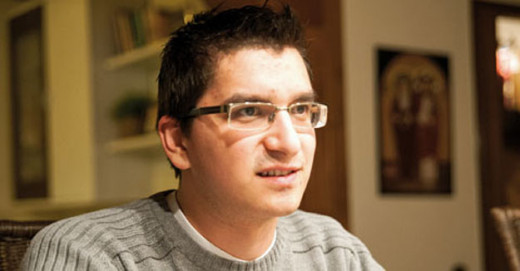
Sabatina James

Copyright Hoax
Cast of Characters
- YouTube Channel - owned by Google, has branches in many countries with moderators for each channel. These moderators handle a number of duties, part of which is responding to copyright infringement claims with counter-notices which require their contact information on the forms.
- Al Hayat TV - a German language Arabic YouTube channel, with subscribers who are mostly converts to Christianity. Uploads are primarily criticism of Islam and Islamists.
- Barino Barsoum - he is a former Islamist, now blacklisted by severa; al Qaeda groups, and was a moderator for the German branch of Al Hayat TV. He set up the original YouTube account for Al Hayat TV, choosing its user name and password. He is the author and presenter of countless YouTube videos for Al Hayat TV. He went into hiding after receiving death threats.
- Sabatina James - she and Barino Barsoum are the only two ex-Islamist moderators to show themselves publicly for Al Hayat TV. Her name is an alias she has used since 1982 when she fled Pakistan to avoid being forced into an arranged marriage to a cousin. As Sabatina James, she used Al Hayat TV's channel to communicate as a Christian activist for women's rights in Muslim countries. Due to threats, she was put in a victim protection program.
- First Crist, Copyright - the name used by a group terrorists who filed a false DMCA claim against Barino Barsoum of Al Hayat TV claiming copyright infringement as an attempt to get his personal information on a rebuttal form.
The Plot
First Crist, Copyright claimed Barino Barsoum's video belonged to them, and on September 25, 2013, they filed a false YouTube DMCA copyright infringement claim (giving the false name of "Edward Samuel George" and physical address which led to a Woolworth store in Sydney Australia) against Al Hayat TV, hoping to get Barino Barsoum to answer the claim.
Because Barino Barsoum was one of two moderators using the channel to communicate to ex-Islamists, gaining his personal information was of great importance to them.
YouTube's policy is to forward the copyright claim to the infringer - in this case, to Al Hayat TV.
- What I didn't know is that the claims are not investigated first.
As one of the two moderators and primary uploader at Al Hayat TV, the copyright infringement claim came to Barino Barsoum's desk. However, he did not immediately answer with a counter-notice.
For nearly six months, several employees of Al Hayat TV, including Barino Barsoum and Sabatina James, were in contact with YouTube claiming that those behind the name "First Crist, Copyright" were Islamist terrorists using this false name to file a false copyright claim.
After hundreds of insults left in the comments on Al Hayat TV's channel, each requiring moderation for deletion until the comments were finally disabled, Al Hayat's channel hit one million views. But no amount of explaining their plight would get YouTube to listen to them.
After the initial claim, First Crist, Copyright filed two more copyright infringement claims during the six months. As per their policy, YouTube then locked Al Hayat TV's YouTube channel.
YouTube told Al Hayat TV that their channel was only locked, not removed. They said Al Hayat TV had to answer with a counter-notice to avoid the permanent removal of their YouTube channel.
YouTube's policy (hence Google's policy) is that once that counter-notice is received, they in turn will forward it to the filer of the initial DMCA notice - in this case, to First Crist, Copyright.
Quoted from Google and YouTube's notice on DMCA form: “By submitting a counter-notification, you consent to having your data be disclosed in this manner.”
Neither Sabatina James or Barino Barsoum were in favor or providing their personal information with address and city. However, in order to get the channel back on the web, Barino Barsoum decided to answer the copyright claim with a counter-notice and supplied his personal information (name, email and physical address) as was required on the form.
Two days after receiving it, First Crist, Copyright sent this email to Barino Barsoum: (paraphrased from translation)
“Thank you for your personal data. Take care that your house gets police protection!”
Barino Barsoum's personal data has since been found on websites and correspondence belonging to al Qaeda.
What's wrong with the guidelines?
YouTube says they have hundreds of moderators reviewing claims of flagged videos 24 hours a day. You would think that someone submitting a false claim might be caught.
They are reviewing moderators, not investigators.
A complete legal request by a copyright owner is submitted to YouTube and they are required by law to take down the video.
It doesn't say they have to investigate it first to see if it is a true legal request.
I think we can expect a upsurge in the filing of copyright infringement claims against innocent people just because the filing party wants the sites taken down.
It's called "removing the competition."
Update
According to Cortez Journal, as of November 7, 2014, YouTube has amended the copyright form used to resolve copyright claims (way after the fact!).
Barino Barsoum said he was simply giving the contact information required on the counter-notice form and after he contacted YouTube about receiving death threats, they refused to address his dilemma.
Mounira Latrache, from YouTube, countered that Al Hayat TV could have entered an attorney's contact information instead of Barino Barsoum's contact information. But that fact was not shown on the form then.
It is now.
Epilogue
Because it was reported from underground sources that he was on an al Qaeda blacklist, Barino Barsoum was forced to stop working for the channel and took his family into hiding.
Sabatina James was also contacted with threats of death and threats of being returned to her family in Pakistan to fulfill an arranged marriage contract. Fearing for her life, she was placed in a victim protection program.
Regarding filing DMCA notices, we must remember that the DMCA law is in favor of hosts and search engines, protecting them so they can't be held accountable for infringing content found on their sites as long as they have a system in place where the infringing content can be reported and removed.
You report it, they remove it.
No one investigates the claim to see if it is true.
Sources for this article
Chasing Rainbows
Since the publicity of this case in 2013, other copyright holders have been the target of hoax copyright claims for the purpose of getting the sites/channels shut down.
Others have been targets in order to get their contact information for nefarious reasons, including death threats.
Anyone can file a copyright infringement claim, whether they are telling the truth or not.
Although this case makes me think twice about filing a DMCA or counter-notice, it is a sad day when the original claim is not even investigated in the first place before forwarding it.
Why are we providing proof of copyright if it is not being investigated?
I guess I thought there was a little bit of common sense being exercised with the sharing of personal information, given the cases of identity theft, data breaches and privacy issues in this day and age, but I guess that was just chasing rainbows.
What is your opinion?
Before reading this article, did you think that copyright infringement claims were investigated before action was taken?

Please don't copy my article. TYVM

© Rachael O'Halloran, November 2014
© 2014 Rachael O'Halloran

